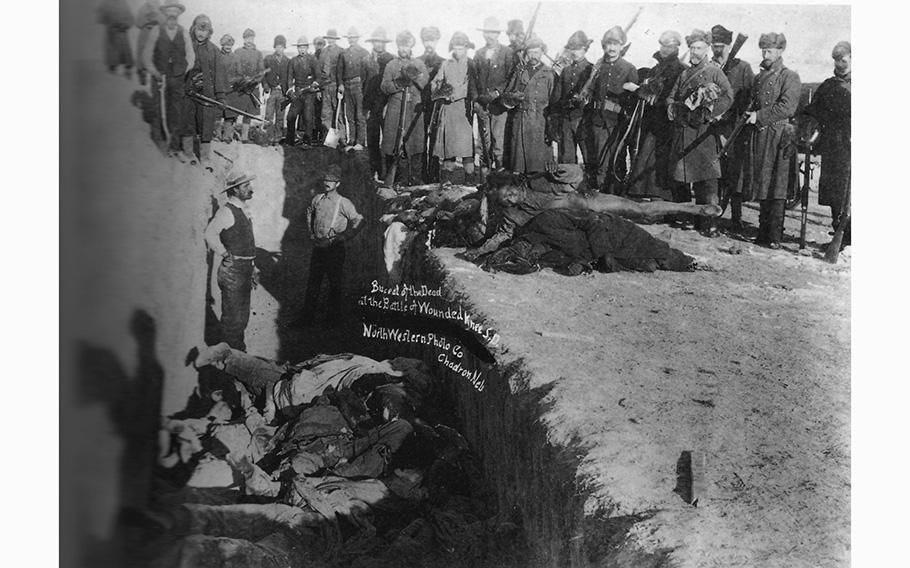
- Details
- By Native News Online Staff
South Dakota Representative Dusty Johnson (R-S.D.) introduced a bill on Thursday, May 16, that would protect a 40-acre Wounded Knee memorial site on the Pine Ridge Indian Reservation in Oglala Lakota County.
The bill will allow tribes continued ownership, while also exempting them from paying taxes on the land where hundreds of their ancestors were murdered by the United States Army.
Specifically, Johnson’s Wounded Knee Massacre Memorial and Sacred Site Act places the land into restricted fee status, held by the Oglala Sioux Tribe and Cheyenne River Sioux Tribe. Restricted fee status allows the tribes to continue to own the land, while exempting them from paying state and local government taxes on it.
In September 2022, the Oglala Sioux Tribe and Cheyenne River Sioux Tribe purchased the 40-acres of land at the site of the Wounded Knee massacre to use as a memorial. The tribes signed an agreement the following month, stating that the land “be held and maintained as a memorial and sacred site without commercial development.”
“The Wounded Knee Massacre is a stain on our nation’s history,” Rep. Johnson said in a statement about his bill. “Memorializing the Lakota lives lost will ensure this site remains sacred for generations to come.”
According to Wounded Knee descendants, whose relatives were murdered in an unprovoked attack on Dec. 29, 1890, when the U.S. Army 7th Cavalry troops killed at least 350 Lakota men, women and children, the memorial site will serve as a reminder of what their ancestors have suffered.
“What happened at Wounded Knee is a reminder that we as a Oyate (people) have succumbed incredible odds to survive, so we must honor our ancestors by preserving the land for future generations to come,” Oglala Sioux Tribe President Frank Star Comes Out said in a statement.
More Stories Like This
Native News Weekly (August 25, 2024): D.C. BriefsUS Presidents in Their Own Words Concerning American Indians
Native News Weekly (January 18, 2026): D.C. Briefs
Federal Judge Orders ICE to Halt Use of Pepper Spray, Arrests of Peaceful Protesters in Twin Cities
Tunica-Biloxi Cultural Leader John D. Barbry Walks On
Help us defend tribal sovereignty.
At Native News Online, our mission is rooted in telling the stories that strengthen sovereignty and uplift Indigenous voices — not just at year’s end, but every single day.
Because of your generosity last year, we were able to keep our reporters on the ground in tribal communities, at national gatherings and in the halls of Congress — covering the issues that matter most to Indian Country: sovereignty, culture, education, health and economic opportunity.
That support sustained us through a tough year in 2025. Now, as we look to the year ahead, we need your help right now to ensure warrior journalism remains strong — reporting that defends tribal sovereignty, amplifies Native truth, and holds power accountable.
 The stakes couldn't be higher. Your support keeps Native voices heard, Native stories told and Native sovereignty defended.
The stakes couldn't be higher. Your support keeps Native voices heard, Native stories told and Native sovereignty defended.
Stand with Warrior Journalism today.
Levi Rickert (Potawatomi), Editor & Publisher


